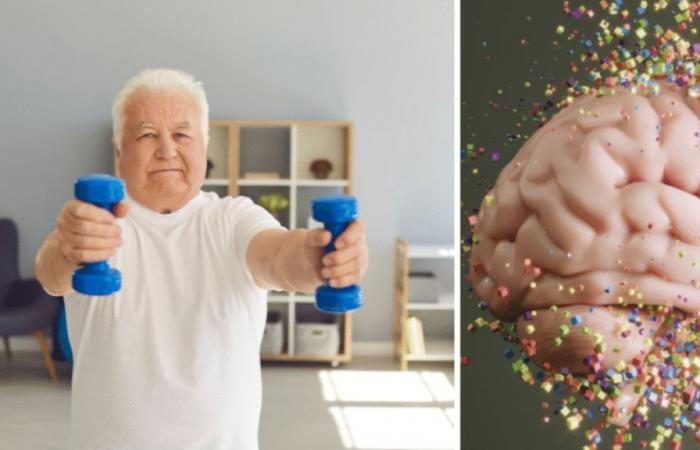Joint research from the University of California in San Diego and the Wake Forest University, both in the United States, showed that physical exercise, either low or moderate-high intensity, can be key to slowing down cognitive deterioration in older people at risk of suffering from Alzheimer’s.
The findings, presented in two articles published in the magazine ‘Alzheimer’s & Dementia’, are based on the Exert studio, which evaluated sedentary older adults diagnosed with mild amnesic cognitive impairment.
This group was compared to another set of similar individuals who received only conventional medical care, such as routine Health controls and medications.
Positive results after a year of supervised exercise
In total, 300 people participated in the Exert study and were assigned to routines of Low or moderate-high intensity exercise.
After twelve months of monitoring, it was observed that the participants who carried out these physical activities managed to keep their cognitive abilities stable or presented significantly lower deterioration compared to those who did not participate in the intervention.
The findings of the study. Photo:stock
Besides, The experts found that both groups that exercise tended to experience a lower loss of brain volume during that same period. This effect was also observed in key areas such as the prefrontal cortex, which was surprising for the researchers, who anticipated a greater degree of deterioration in the analyzed sample.
According to the authors, another possible reason for these benefits would be that exercise, beyond physical effort, intellectual and socially stimulates older adults, which could also contribute to protection against cognitive deterioration.
A significant advance in Alzheimer’s prevention
“Together, these findings show us that even the low intensity exercise can slow the cognitive deterioration in older adults at risk,” said Aladdin Shadyab, the lead author of one of the articles and associate professor at the Herbert Wertheim School of Public Health and human Longevity Sciences of the University of California in San Diego.
Exercise has important benefits in the brain. Photo:stock
The Exert study included an innovative feature when incorporating coaches of the YMCA organization visited by the households of the participants. Each person was randomly assigned to aerobic training routines of moderate-high intensity or activities of lower intensity such as Stretching, equilibrium exercises and movement rank.
“While there is still much to learn, these findings show that the exercise of regular intensity, even at low intensity, could be of great help for older adults to delay cognitive deterioration, and this is a promising news for those who have a high risk of dementia,” Shadyab added.
Research to counteract the symptoms of Alzheimer’s. Photo:stock
Large -scale investigation on the effects of exercise
For her part, Dr. Laura Baker, principal researcher of the study and professor of gerontology and geriatric medicine at the Faculty of Medicine of the University of Wake Forest, highlighted the magnitude of the project.
“Exert is a historical study because it is the greatest rigorous exercise ever performed in adults with mild cognitive impairment,” he said.
Although the benefits of exercise in different dimensions of human health are already widely documented, Baker indicated that “all its potential” is still being known as medical intervention in older adults who face memory difficulties.
Europa Press.
Women, more prone to suffer from Alzheimer’s and depression
More news in time
*This content was rewritten with the assistance of artificial intelligence, based on information from Europa Press, and had the review of a journalist and an editor.






